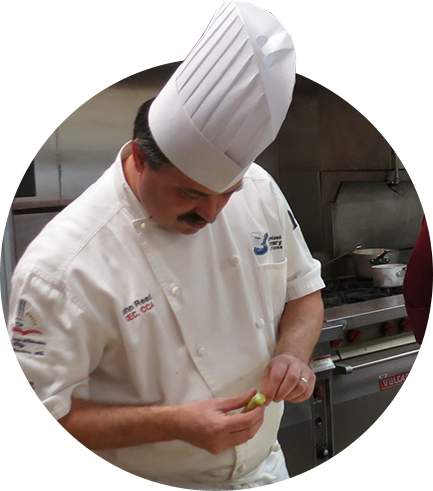Being in hospitality is an extremely rewarding profession for millions of employees and operators across all segments where food and drink is served to others. The emotions we have every day from jubilation to hearth break and the rigors from our fast-paced and always changing world are the reasons we wake up every morning.
The “rush’ you get from working in foodservice is why we chose to enter into the profession. Over the years there have been many successful ventures and many more that have not. Through this journey over the last 50 years of commercial and non-commercial foodservice there has had one constant, the ability to operate on our terms. There was no stay at home, no social distancing, an abundance of product and plenty of customers needing to be fed. That has all changed, Covid-19 took away our ability to do what we do. We feed, we pour, we serve and not doing so is taking a toll on our personal, financial and professional well-being.
How to do we get back to the business for guests to gather and to have an experience that can’t be replicated at home or purchased from retail? This industry of passionate professionals is in the best position to do so and it starts their own operations.
For any recovery process, we need to implement a focused stepped approach:
Accept the Problem: The foodservice industry has been deeply affected with closures, lost revenues, rattled consumer confidence and tremendous job loss.
Surrender to the Problem The path to economic recovery does not start from the same playbook, it has been completely re-written with a larger set of interconnect social problems. Unknown consumer confidence, supply chain issues, increased debt and a regulated control back to normal levels of society are facing business across all industries not just foodservice.
Creating Self-awareness: Considering this new set of problems and market conditions, you have to decide whether you want to revive the operation as it was, redesign and rebuild or shut down. Operators as well as individuals have to decide how they want to return to business. The key is to realistically look at why you want to continue. Are there factors beyond your control such as contracts, viability of your previous business model, life cycle stages and even personal desires steering you down an inevitable path.
Taking Inventory: Operators have to count what they have. This includes working capital, facilities, contractual agreements, operational expenses, quality of staff, technology, community engagement and unique intellectual properties. How can they be better used today before adding more?
The other inventory assessment is operating procedures and placing value of their actual effectiveness. They need to be counted as key ingredients or discarded as excess inventory that is wasting precious resources.
Self-Acceptance of Strengths and Weaknesses: By re-writing or the development of a well-articulated and self-aware business plan is essential. The plan will promote your strengths and addresses your operational opportunities, and this allows operators to clearly communicate the new goals of your business. Creating specific plans for all aspect of the business from social media marketing, menu engineering, décor, equipment selection, staffing models, to your overall value proposition provides the needed procedures to communicate, implement, manage and navigate the business back to health.
This “living” plan will also identify where you need to draw on others outside the organization to guide and support, by meeting or exceeding un-realized goals for your customers and staff.
Demonstrating Compassion for Others: Building a unified team recognized for their true value through equitable living wages, non-financial benefits, workplace safety, flexibility of employment and the ability to contribute allows the business to recover collectively. Our former staffs need this industry just as much as customers wanting to dine out.
Working with your partners in the foodservice community as equals creates strength in unity. Building community networks and leveraging industry organizations is profitable from shared buying power, collaborative recovery strategies and industry specific legislation that foster positive change towards expedited growth not just a return to “normal”.










